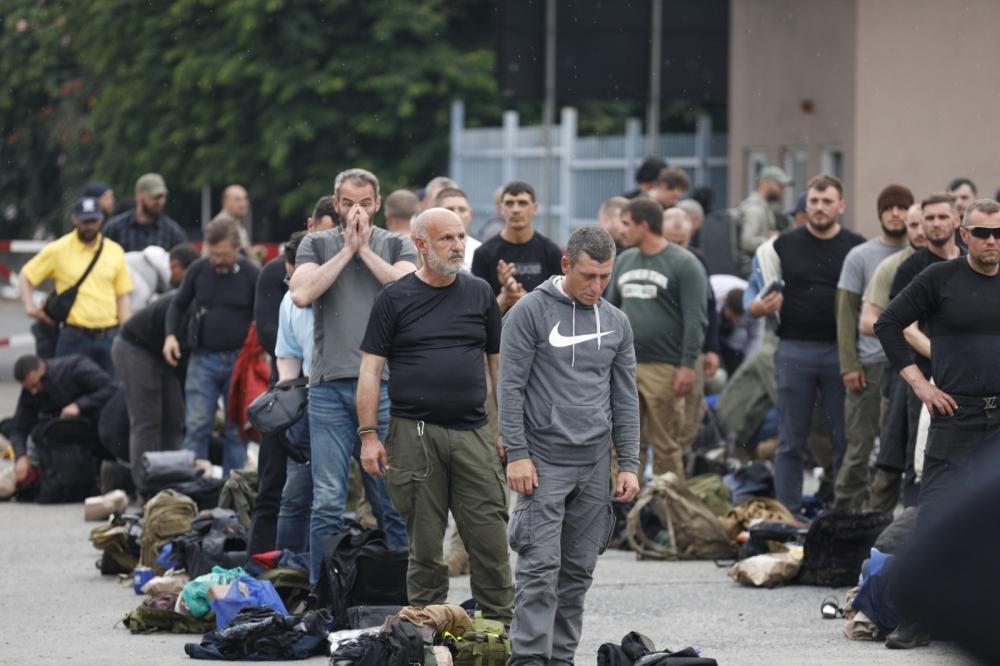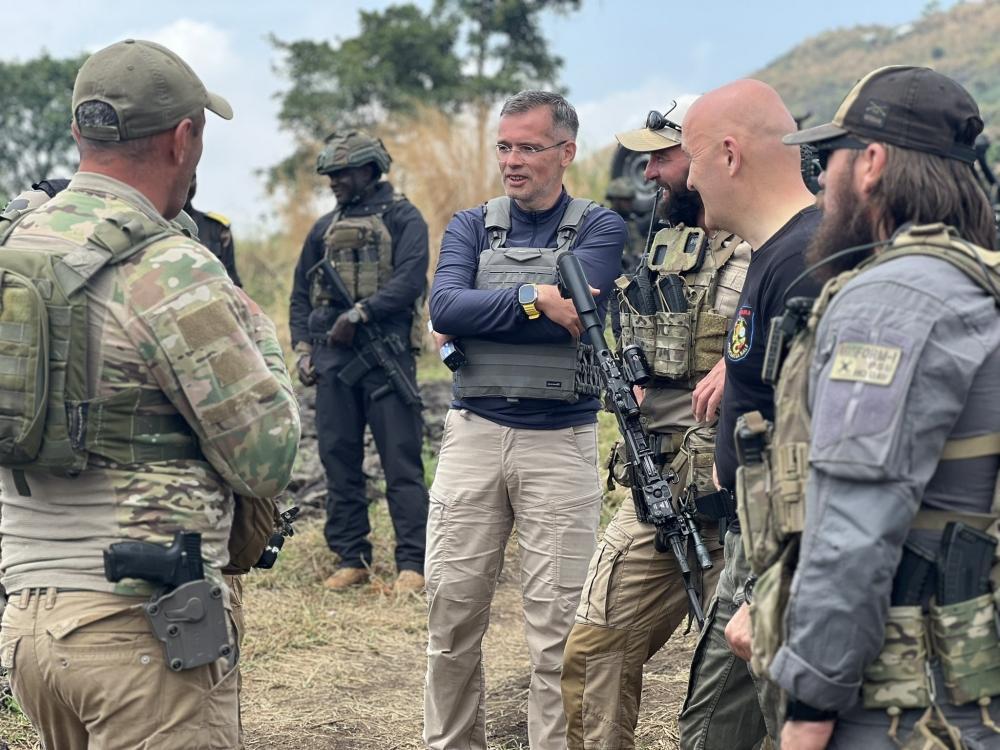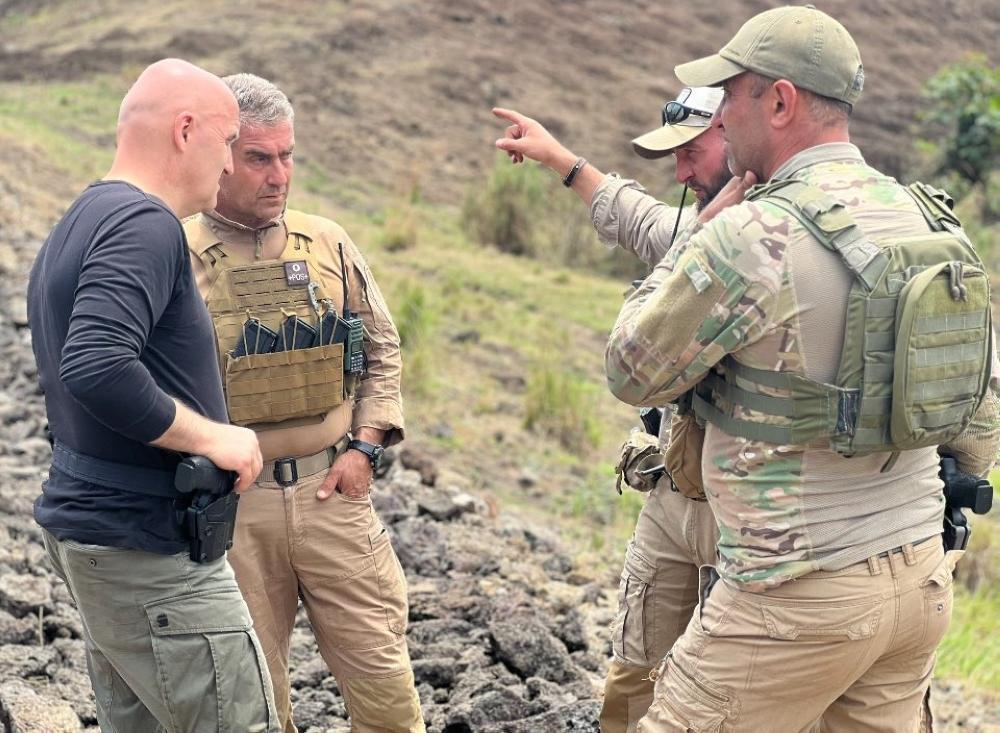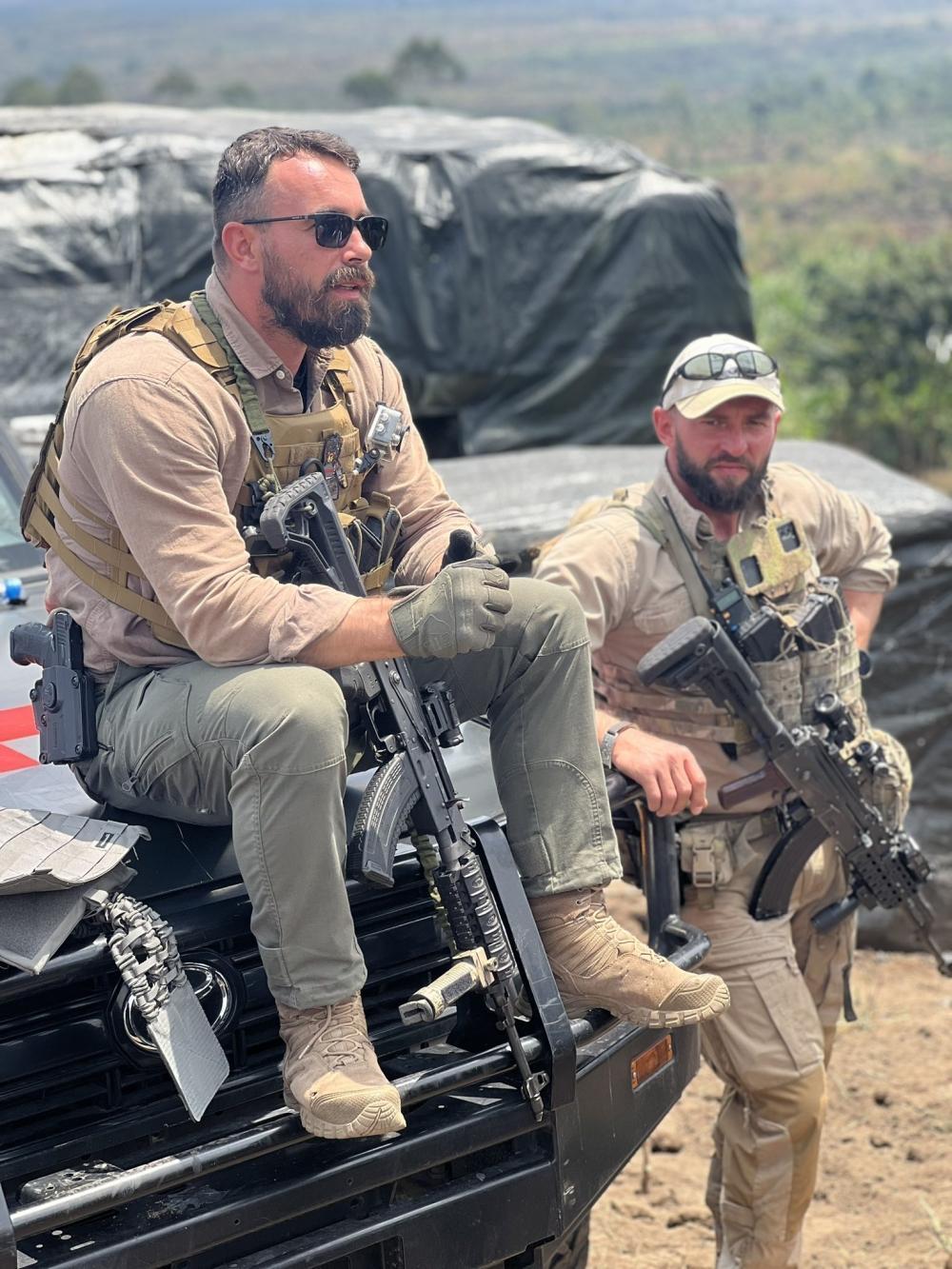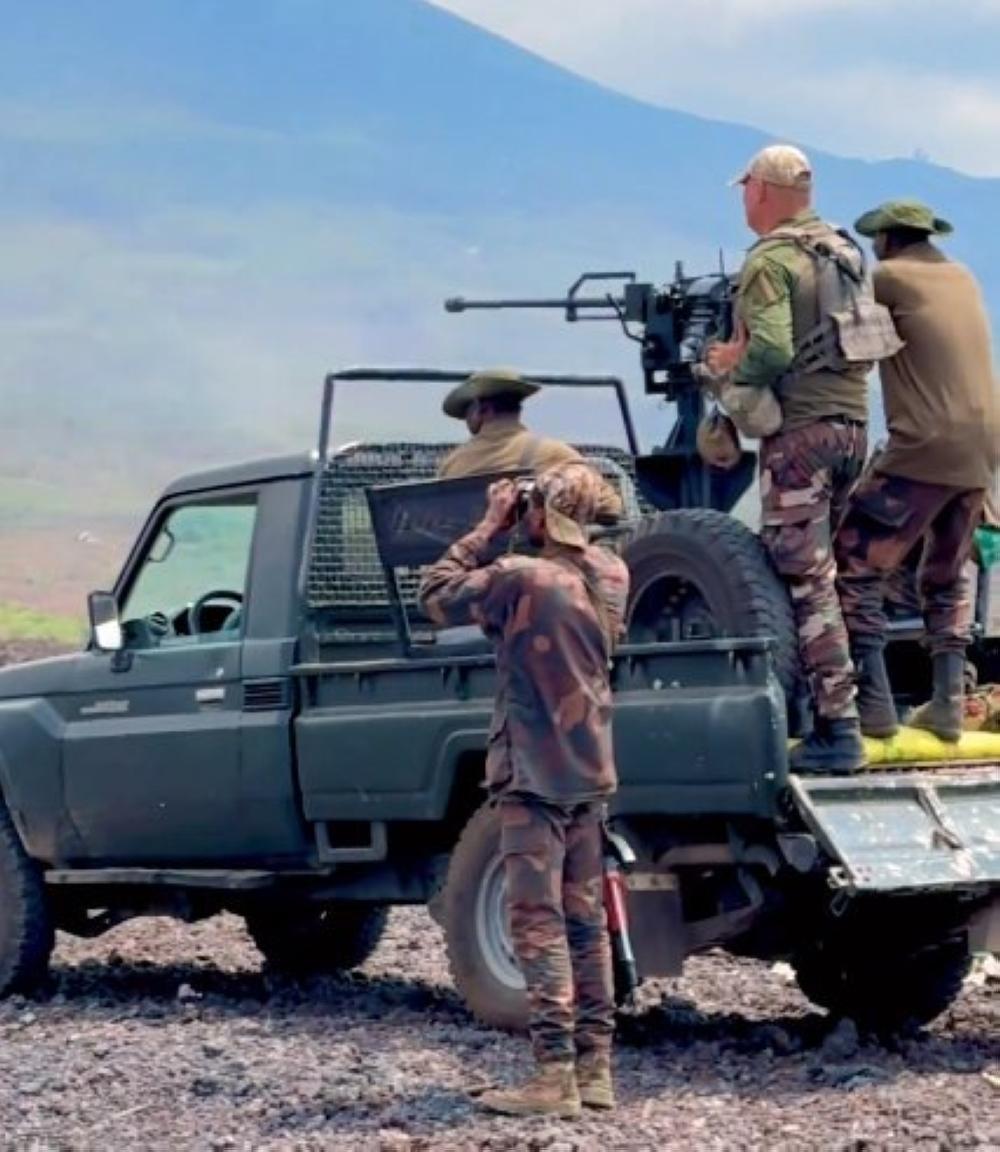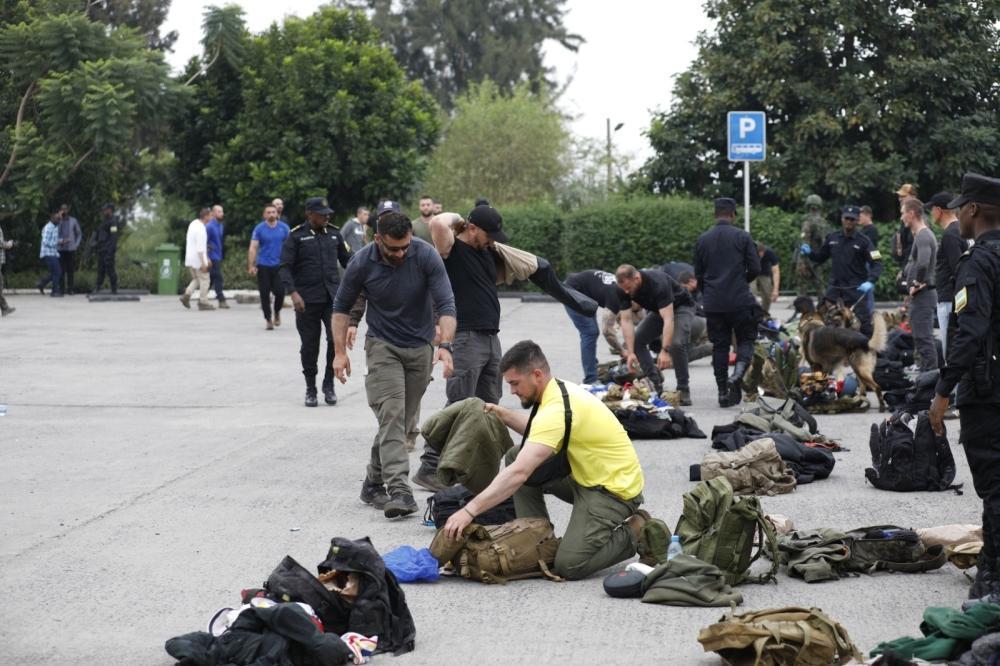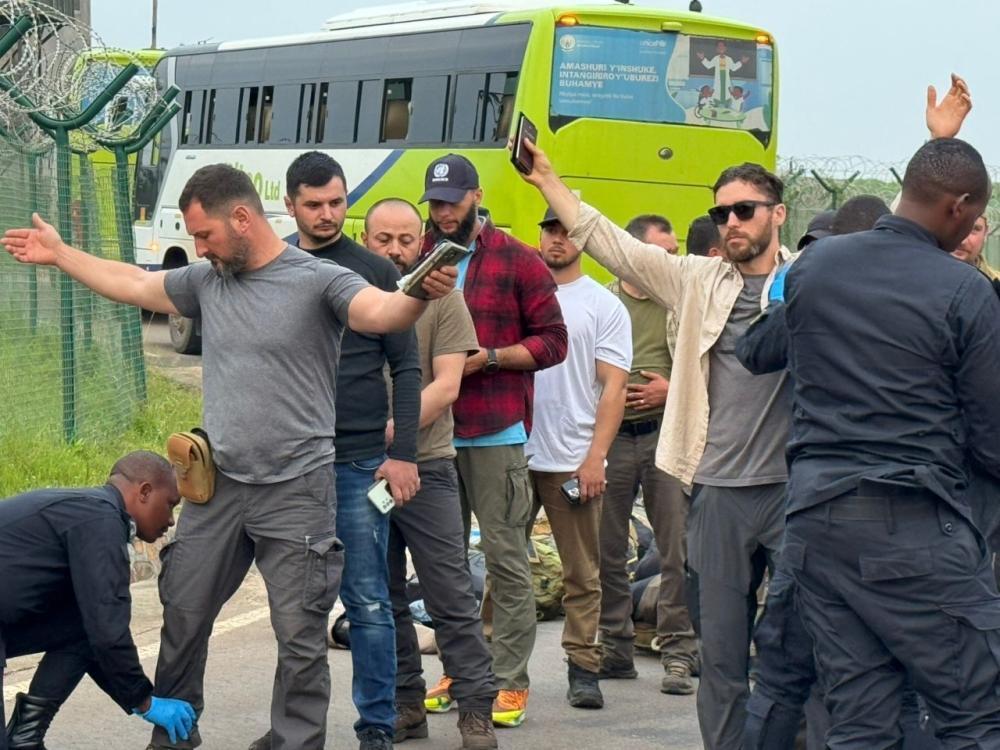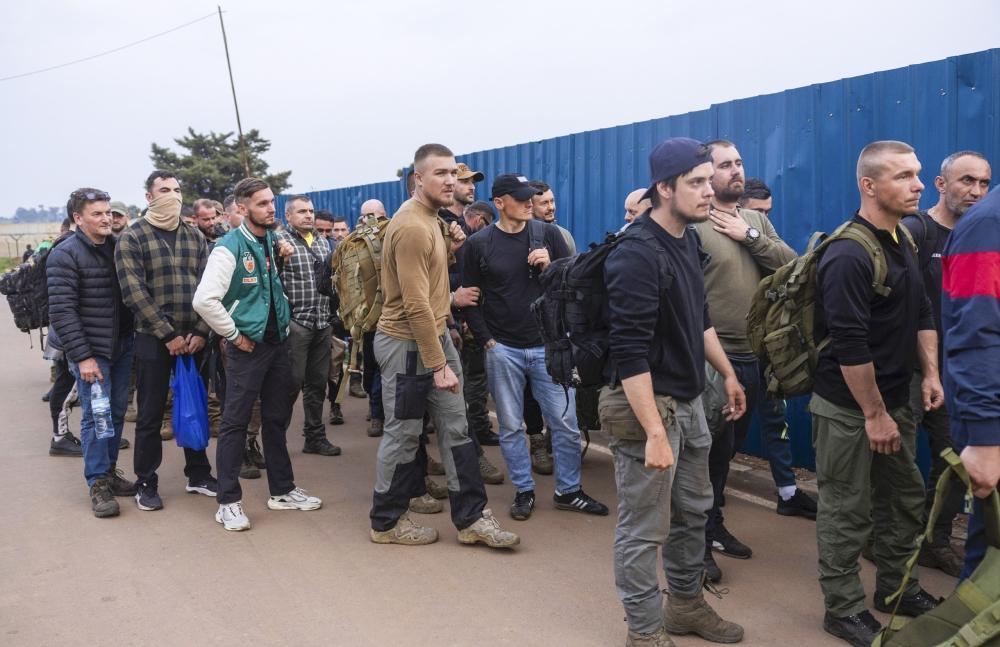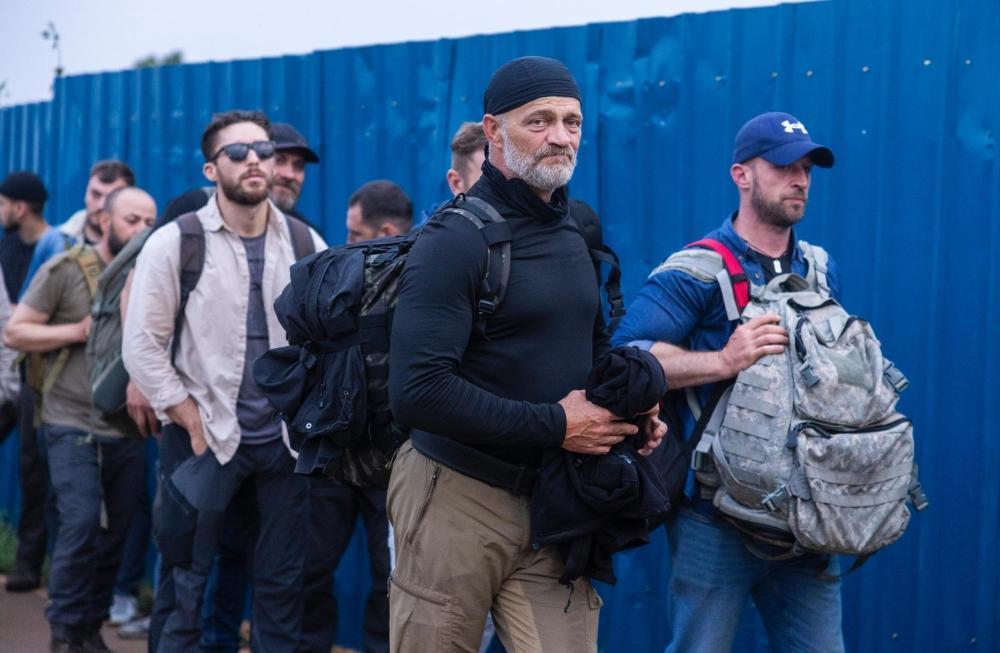Africa-Press – Rwanda. The Democratic Republic of Congo (DRC) has heavily relied on foreign mercenaries to bolster its military efforts against the M23 rebels, despite the government’s insistence that they were merely instructors.
Months of investigative reporting by BBC revealed that these foreign fighters, particularly Romanians, played a far more active role on the battlefield than officially acknowledged.
When M23 launched an offensive on Goma in North Kivu province, the Romanian mercenaries found themselves outmaneuvered. Surrendering to M23, they took refuge at a UN peacekeeping base before being handed over to Rwanda.
Following negotiations, approximately 300 Romanian mercenaries were sent to Rwanda on January 29 as part of their repatriation process.
The cost of mercenaries
One of the most striking disparities in the DR Congo’s use of mercenaries was the pay gap between them and the Congolese soldiers. A contract reviewed by BBC revealed that a senior-level Romanian mercenary earned a base salary of $5,000 per month during active duty and $3,000 during leave – an amount roughly equal to the combined salaries of 50 Congolese soldiers.
European mercenaries who were fighting alongside FARDC in eastern DR Congo. Courtesy
The contract further stated that these mercenaries would serve “indefinitely” unless terminated, with a break of one month for every three months of deployment.
This wage inequality deeply frustrated local troops. One Congolese soldier, speaking anonymously, lamented, “The pay is unfair. When it comes to fighting, we are the ones sent to the front lines first.” He also revealed that his meager $100 monthly salary was frequently delayed or unpaid altogether.
According to a UN group of experts, as cited by BBC Africa reporter Ian Wafula, two private military companies signed contracts with the Congolese government in 2022 to support the army against M23.
These were Agemira RDC, which employed personnel from Bulgaria, Belarus, Georgia, Algeria, France, and Congo, and Congo Protection, a Congolese firm represented by Thierry Kongolo, which worked alongside Association RALF, a Romanian enterprise led by Horatiu Potra and composed of former members of the French Foreign Legion.
While the official agreement stated that Romanian operatives from Association RALF were present to train Congolese forces, evidence suggests they were actively involved in combat. A senior Romanian commander stationed outside Bucharest confirmed that they were guarding key positions around Goma in 12-hour shifts.
When questioned about their involvement, Association RALF’s leader, Horatiu Potra, stated, “We have to protect ourselves. If M23 attacks us, they won’t simply say, ‘Oh, you’re just instructors – go home.’”
Government denials
Despite mounting evidence of mercenary involvement, Congolese officials continuously denied the claims. Government spokesperson Patrick Muyaya dismissed reports in June 2024, saying, “They [Rwanda] have been propagating lies for years,” adding, “We have some instructors who come to train our military forces because we know we have this urgent situation.”
International law defines mercenaries as individuals motivated by financial gain, lacking national ties to the conflict, and specifically recruited for combat.
The Geneva Conventions’ Additional Protocol I (Article 47) and the 1989 UN International Convention criminalize mercenary activities aimed at destabilizing governments.
In Africa, the 1977 OAU Convention labels mercenarism a crime against peace and security, imposing severe penalties, including capital punishment, on those involved.
Legal expert Alphonse Muleefu criticised the DRC’s reliance on mercenaries, stating that as a signatory to the OAU convention, DR Congo should not engage in such actions.
“Using mercenaries is not right, especially when you are fighting against the country’s own citizens who are fighting for self-determination and their rights,” Muleefu asserted. He further noted that Congo had the means to punish such crimes but was instead fueling them.
“International laws are typically enforced when they are domesticated and aligned with a country’s will. However, in this case, the crimes were committed by DR Congo, on Congolese soil,” he explained.
“If M23 had chosen to enforce these laws after apprehending the perpetrators, it could have done so – despite not being a recognised state – because the group governs the area and holds the responsibility to protect its citizens,” he added.
According to the legal expert, if they wished, M23 could have punished the mercenaries based on DR Congo’s ratification of the convention, if the domestic laws for prosecuting such crimes exist.
He pointed out that the term “Private Security Companies” was coined by the U.S. to justify the hiring of mercenaries in conflicts such as Afghanistan and Iraq, allowing for their deployment without scrutiny.
The terminology has since been used to obscure mercenary activities worldwide.
Speaking at the 24th Extraordinary Summit of East African Community (EAC) heads of state, President Paul Kagame criticised DR Congo’s President Félix Tshisekedi for dismissing EAC’sdefense forces in favor of the Southern African Development Community (SADC) and foreign mercenaries.
“I don’t know how many entities we have in DRC, honestly. We have MONUSCO, SAMIDRC, mercenaries, Burundi, and FDLR. And everybody is there watching this and pretending like we don’t understand what’s been happening all these years,” Kagame said, referring to the long-standing violence in Eastern Congo, particularly against the Tutsi ethnic group, which M23 claims to protect.
The Rwandan government has consistently denied allegations of supporting M23, arguing instead that Congo’s partnership with mercenaries has exacerbated the crisis.
Rwanda has also cited security concerns, pointing out that FDLR, a genocidal militia responsible for the 1994 Genocide against the Tutsi, operates from within DR Congo and has launched attacks on Rwandan territory.
The mercenaries’ harsh reality
The presence of these foreign fighters, recruited through the Romanian company Asociatia RALF, led to widespread confusion, with some Congolese mistaking them for Russian Wagner Group operatives. Although promised lucrative pay, former mercenaries described poor working conditions and a chaotic command structure.
One ex-mercenary, speaking anonymously to the BBC, lamented, “Missions were disorganised, working conditions poor. Romanians should stop going there because it’s dangerous.” He also revealed that some recruits lacked military experience, with one former colleague having worked as a firefighter.
Constantin Timofti, a coordinator for the group, described the dire situation in an interview with Romania’s TVR channel, stating, “The M23 rebels managed to reach our positions around the city of Goma. The national army gave up fighting, and we were forced to withdraw.”
The dangers of mercenary work in DRC were tragically underscored by the deaths of two Romanian fighters, including Vasile Badea, a former police officer who had taken up the role to support his struggling finances. Badea was killed in February 2023 when an army convoy was ambushed by M23 rebels.
Recruitment efforts persist
Despite the disastrous outcome for the Romanian fighters, recruitment efforts continue. A recruiter interviewed by the BBC in Bucharest revealed ongoing attempts to enlist 800 new mercenaries, offering salaries ranging from $400 to $550 per day. The recruitment process remains highly secretive, relying on private networks such as WhatsApp to attract candidates.
Meanwhile, the Congolese army continues to operate alongside multiple armed forces, including FDLR, SADC troops, Burundian soldiers, and local militias like Wazalendo. This fragmented military structure has led to operational confusion and inefficiencies.
Richard Moncrief of the International Crisis Group warned, “It creates a situation where it’s impossible to plan military offensives where the chain of command and responsibility is muddied. There needs to be greater coherence in the armed effort in North Kivu, probably involving a reduction in the number of armed groups on the ground.”
For More News And Analysis About Rwanda Follow Africa-Press

